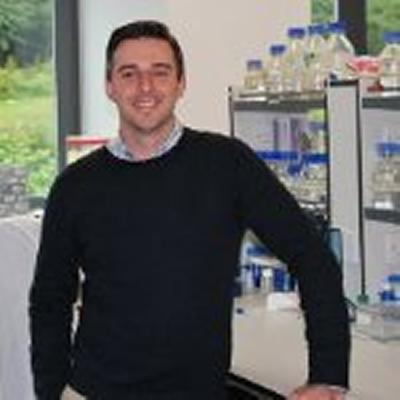Lunchtime Seminar: Intrinsic and extrinsic regulation of human fetal germ cell development

Dr Andrew Childs from the University of Edinburgh is visiting to give the HDH lunchtime seminar in the IDS building, SGH, 1pm Thursday 27th September. Andy is a highly talented Senior Postdoctoral Fellow with Prof. Richard Anderson and a very engaging speaker
Date: 13:00 - 13:45, 27th September 2012
Place: The Somers Lecture Theatre, Level A, IDS building, Southampton General Hospital
Synopsis
Primordial germ cells (PGCs) - the progenitors of the spermatogenic and oogenic lineages that produce gametes in the adult - are a transient population of germline stem cells that exist only during fetal life. Like other stem cells, the fate of PGCs is dictated by a specialised microenvironment known as the germ cell niche, and studies in transgenic mouse models have yielded a wealth of data on the factors and interactions that make up the niche in the fetal mouse gonad. The spatial and temporal organisation of germ cell development in the human fetal ovary differs radically from that of the mouse however, suggesting that significant differences may exist between the two species in the mechanisms by which germ cell development is regulated. In this talk, I’ll present our recent data on how signalling by members of the TGF-beta superfamily may influence germ cell development in the human fetal ovary by modulating the molecular composition of the niche, and discuss how germ cell-expressed RNA binding proteins may act to integrate niche-derived signals to regulate the progression of germ cells into and through meiosis.
Biography
Andrew’s scientific career began with a B.Sc. in Genetics at University College London (1999-2002), during which a final year project on the genetics of spermatogenesis sparked an interest in the biology of germ cells. To pursue this further, he moved to Edinburgh to undertake a four-year combined MSc/PhD (2002-2006) in the laboratory of Professor Howard Cooke at the MRC Human Genetics Unit, characterising novel genes expressed in mouse primordial germ cells and pluripotent stem cells. This was followed by postdoctoral training with Professor Richard Anderson at the MRC Human Reproductive Sciences Unit (2006-2010), investigating the regulation of oocyte development by growth factor signalling in the human fetal ovary. Work arising from this led to Andrew being awarded a fellowship from Medical Research Scotland in 2010, to investigate how the somatic cells of the human fetal ovary influence germ cell fate, with a focus on the mechanisms by which germ cells switch from self-renewal to differentiation.
Speaker Information
Dr Andrew Childs, Senior Postdoctoral Fellow, The University of Edinburgh